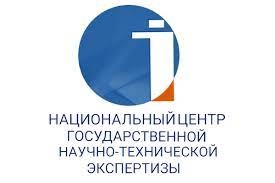BORROWINGS IN PEDAGOGICAL DISCOURSE OF THE RUSSIAN LANGUAGE: FROM GRAPHICS TO NETWORK RESOURCES
https://doi.org/10.55491/2411-6076-2024-1-166-176
Abstract
The article discusses borrowing issues in pedagogical discourse associated with the emergence of new concepts and terms (anglicisms) in the modern Russian language. Penetration of English words in the third millennium of the 21st century happens due to a number of reasons. Thus, the main one, according to the authors, is strengthening of digitalization caused by transition to online learning in the context of a global pandemic. The article poses the problematic aspect of whether borrowed words are a random element in the modern Russian language or it is a challenge of the time. Constant change in the consciousness of humanity, promoting development of all spheres of life in the new reality, inevitably leads to changes in guidelines in the economy, politics, culture, and education. There is a need to revise the goals and objectives of the education and development of an individual who effectively uses the acquired knowledge in upgrading of all spheres of life. New reality requires new concepts to realize and decode unfamiliar phenomena, which leads to a change in scientific and educational paradigms, the emergence of new trends in education, and adaptation of thinking. Challenges of the present millennium force us to make attempts to find out the feasibility of the changes being made. Thus, the authors of the article analyzed the corpus of borrowed units in the pedagogical discourse of the Al-Farabi Kazakh National University. Anglicisms and their derivatives were identified by a continuous sampling method from oral and written speech of lectures and students, the context of educational materials and educational platforms of the university. Analysis of the borrowings of pedagogical discourse in a given period allows us to identify main mechanism of adaptation of new terms and determine the speed of their penetration.
About the Authors
I. KuznetsovaKazakhstan
Almaty
M. Kengessova
Kazakhstan
Almaty
D. S. Kulmamatov
Uzbekistan
Tashkent
References
1. Dyakov A.I. (2001) Derivazionnaya integraziya anglizismov v russkom jazyke XX veka v funkzionalnom aspeckte [Derivational integration of anglicisms in the Russian language at the end of the 20th century in a functional aspect]: dis. for the degree of candidate of philological sciences. Novosibirsk, 295 [in Russian].
2. Efremov L.P. (1958) Sushnost lexicheskogo zaimstvovaniya i osnovnyje priznaki osvojenija zaimstvovannych slov [The essence of lexical borrowing and main features of the development of borrowed words]. Dis. … cand. philologist. Sciences: Alma-Ata, 288.
3. Ezhova T.V. (2009) Projectirovanije pedagogicheskogo diskursa v vysshem professionalnom obrazovaniy budushego uchitelja [Designing a pedagogical discourse in high professional education of a future teacher]: Abstract of the thesis for the degree of candidate of philological sciences. Orenburg, 46 [in Russian].
4. Kazkenova A.K. (2003) Motivirovannost zaimstvovannogo slova (na materiale russkogo jazyka) [Motivation of a borrowed word (based on the material of the modern Russian language). Issues of Linguistics, No. 5, Moscow, 72-80 [in Russian].
5. Karasik V.I. (2002) Yazykovoy krug: lichnost, konzepty, diskurs [Language circle: personality, concepts, discourse]. Volgograd: Change, 477-480 [in Russian].
6. Karasik, V.I. (2012) Yazykovaja matriza kultury [Language matrix of culture]. Volgograd: Paradigm, 448 [in Russian].
7. Korobkova N.V., Mirzoyan L.G. (2020) Slovar “novoy” realnosti: neologizmy vyzvannije pandemiye 2020 [Dictionary of the “new” reality: neologisms caused by the 2020 pandemic. Collection of II International Scientific Conference “Language, Culture, Mentality: Issues and Prospects of Philological Research”, Kursk,136-142 [in Russian].
8. Martinet A. (1974) Elementy obshey lingvistiky [Elements de linguistique generale]. Paris: A. Colin, 221 [in French].
9. Mukhina N.N. (2021) Sistema terminooboznacheniy vostochnych zaimstvovaniy v sovremennnom russkom jazyke [Terminological system of Eastern borrowings in modern Russian. Philology. Theory & Practice. Volume 14. Issue 6. Gramota Publishing House, 1758-1762 [in Russian].
10. Tarasova M.V., Bezrukaya A.N., Postnikova S.N. (2020) Anglojazychnije ekzotizmy v russkom jazyke kak jarkiy primer zaimstvovaniy na fone obshey globalizaziy angliyskogo jazyka [English-language exoticisms in Russian as a vivid example of borrowing against the background of general globalization of the English language] // International scientific journal “Bulletin of Science” No. 6. Tolyatti, 38-41 [in Russian].
11. Sidorenko S.G. (2015) Tipy i etapy transformaziy semanticheskoy strucktury zaimstvovannych ponjatiy [Types and stages of semantic structure transformation of borrowed concepts]. Modern issues of science and education. No. 1-1. Retrieved from: https://science-education.ru/ru/article/view?id=18030 [in Russian].
12. Suvorova S.L. (2012) Fenomennologiya issledovaniya ponjatiy “diskurs” i “pedagogicheskiy diskurs” [Phenomenology of the study of the concepts “discourse” and “pedagogical discourse”. SUSU Bulletin, No. 4, 84-87 [in Russian].
13. Shcherbinina, Yu.V. (2010) Pedagogicheskiy diskurs: myslit – govorit – deystvovat [Pedagogical discourse: think - speak – act] textbook. M.: Flinta: Nauka, 440 [in Russian].
14. Shukhardt G. (2003) K voprosu o yazykovom smesheniy [On the issue of language shift]. Selected articles on linguistics. Ed. 2nd. M.: Editorial URSS, 174-184 [in Russian].
15. Schuchardt G. (1927) “Das Baskische und die Sprachwissenschaft” Sch-Brev. Paris, 206.
16. Sinclair J. (1975) Towards an Analysis of Discourse: The English Used by Teachers and Pupils / J. Sinclair, M. Coulthard. Oxford: Oxford University Press, 163.
17. What is Zoom? How to install the Zoom client? Where to begin? Retrieved from: https://rightconf.ru/ustanovka-client-zoom#:~:text=Client (Date of access: 07/14/2023) [in Russian].
18. Al-Farabi University - Smart City. Retrieved from: https://www.kaznu.kz/ru/20523/page/ [in Russian].
Review
For citations:
Kuznetsova I., Kengessova M., Kulmamatov D.S. BORROWINGS IN PEDAGOGICAL DISCOURSE OF THE RUSSIAN LANGUAGE: FROM GRAPHICS TO NETWORK RESOURCES. Tiltanym. 2024;(1):166-176. (In Russ.) https://doi.org/10.55491/2411-6076-2024-1-166-176
















